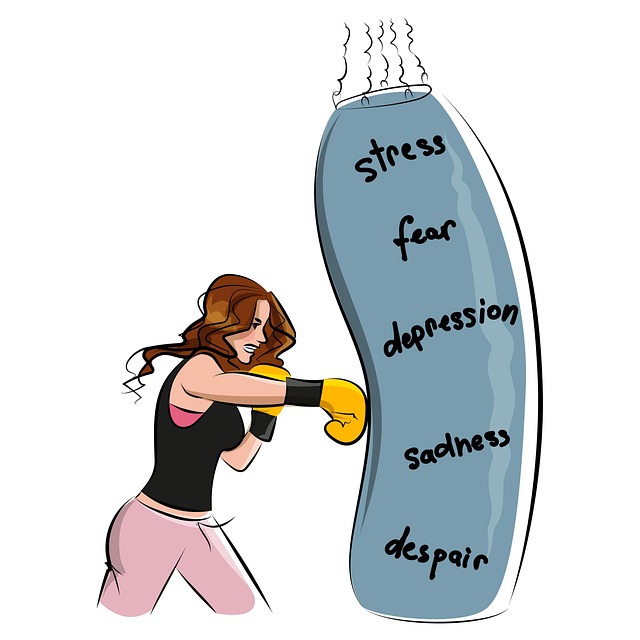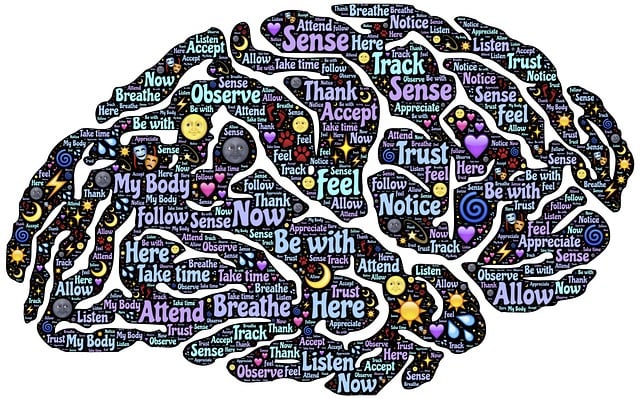Childhood abuse and trauma can lead to severe mental health issues if unaddressed, but therapy, especially specialized programs for survivors, plays a vital role in recovery. Positive thinking exercises tailored to children's needs, integrated into therapy and community support systems, foster resilience, emotional regulation, and self-esteem. These exercises, when consistently practiced, help overcome negative thought patterns associated with trauma, promoting long-term healing.
“Unleashing the transformative power of positive thinking can be a life-altering journey, especially for children who have experienced abuse or trauma. This article explores how implementing structured positive thinking exercises can serve as an innovative therapy for survivors, fostering resilience and mental healing. By delving into the impact of childhood abuse, we uncover the effectiveness of positive thinking as a therapeutic approach. We’ll guide you through designing engaging activities, offering strategies for consistency, and providing methods to measure progress, ultimately empowering professionals and caregivers.”
- Understanding the Impact of Childhood Abuse and Trauma on Mental Health
- The Power of Positive Thinking as a Therapeutic Approach
- Designing Effective Positive Thinking Exercises for Children
- Implementing the Exercises: Strategies for Consistency and Engagement
- Measuring Progress and Supporting Long-Term Healing with Positive Thinking
Understanding the Impact of Childhood Abuse and Trauma on Mental Health

Childhood abuse and trauma can have profound and long-lasting effects on a person’s mental health and overall well-being. These early experiences often lay the foundation for an individual’s emotional and psychological state in adulthood. When left unaddressed, childhood trauma can lead to various mental health issues such as depression, anxiety disorders, post-traumatic stress disorder (PTSD), and even personality disorders.
Therapy plays a pivotal role in helping survivors of child abuse navigate their traumatic experiences and develop healthy coping mechanisms. Through specialized therapy for children abuse survivors, individuals can learn to challenge negative thought patterns and beliefs formed during traumatic events. By applying mind over matter principles, therapy empowers survivors to reframe their perceptions, fostering mental illness stigma reduction efforts and encouraging the development of resilience. Mental wellness podcast series production has also emerged as a valuable tool, offering platforms for sharing recovery stories and promoting awareness about the impact of trauma, ultimately contributing to more effective support systems.
The Power of Positive Thinking as a Therapeutic Approach

The power of positive thinking has been recognized as a therapeutic approach with immense potential, especially for children who have survived abuse. This concept focuses on reframing one’s mindset to cultivate optimism and resilience, which can significantly impact recovery and overall well-being. By encouraging survivors to challenge negative thoughts and beliefs, therapy helps them develop healthier perspectives and coping mechanisms. Positive thinking acts as a shield against the profound psychological effects of trauma, fostering a sense of safety and empowerment.
In the context of therapy for children abuse survivors, positive thinking exercises can be tailored to suit individual needs through various stress reduction methods. Community outreach program implementation and crisis intervention guidance also play a pivotal role in promoting these practices. These approaches collectively contribute to creating supportive environments where survivors can learn to navigate their experiences with enhanced emotional agility and a renewed sense of hope.
Designing Effective Positive Thinking Exercises for Children

Designing Positive Thinking Exercises for Children involves tailoring activities that cater to their developmental stage and unique experiences. These exercises should foster a sense of safety, as many children, especially those who have experienced trauma or abuse, may struggle with trust and self-expression. Incorporate creative elements like storytelling, art, and play to make the sessions engaging and therapeutic. For instance, guided meditation stories can help children visualize peaceful scenarios, enhancing their ability to manage stress and anxiety.
When creating these exercises, it’s crucial to integrate coping skills development techniques that promote positive thinking. Simple practices such as deep breathing, affirmations, and positive self-talk can be powerful tools for trauma support services. By regularly engaging in these activities, children can gradually improve their emotional regulation abilities and build resilience. Additionally, focusing on self-esteem improvement through encouraging language and age-appropriate goals can empower kids to view themselves in a more positive light.
Implementing the Exercises: Strategies for Consistency and Engagement

Implementing positive thinking exercises requires strategic planning to ensure consistency and engagement, especially when tailored for therapy among children abuse survivors. A structured schedule, integrated into daily routines, can normalize the practice of optimism and resilience-building. Starting small, with just 10–15 minutes daily, allows for gradual adjustment and higher adherence rates. Incorporating these exercises within existing therapeutic frameworks, such as community outreach programs or support groups, provides a familiar context that fosters comfort and participation.
To maintain momentum, it’s crucial to make the activities interactive and enjoyable. Using creative tools like art, storytelling, or even games can transform what might seem like a chore into an eagerly anticipated experience. Additionally, promoting peer support networks within these programs enhances engagement by fostering camaraderie among participants, encouraging open dialogue, and facilitating the sharing of emotional intelligence and conflict resolution techniques.
Measuring Progress and Supporting Long-Term Healing with Positive Thinking

Measuring progress is an integral part of any healing journey, especially for children who have experienced abuse. By incorporating positive thinking exercises into therapy sessions, therapists can help survivors track their emotional growth and resilience. This process involves regular self-reflection and setting achievable goals, allowing them to gain a sense of control over their lives and emotions. As they start to believe in their ability to overcome challenges, the positive thoughts become a powerful tool for managing trauma responses and fostering long-term healing.
In the context of therapy for children abuse survivors, these exercises can complement Crisis Intervention Guidance and Social Skills Training. The Mind Over Matter principles encourage survivors to challenge negative thought patterns and replace them with more adaptive and optimistic perspectives. This shift in cognition can lead to significant improvements in their overall well-being and ability to navigate social interactions, which are crucial components of recovery.
Positive thinking exercises offer a promising therapeutic approach for children affected by abuse and trauma, providing them with tools to heal and build resilience. By integrating these strategies into their lives, survivors can gradually reframe negative thought patterns, foster a sense of safety, and promote long-term mental well-being. Consistent practice, combined with supportive environments, is key to unlocking the benefits of positive thinking as a powerful form of therapy for children who have experienced adversity.









